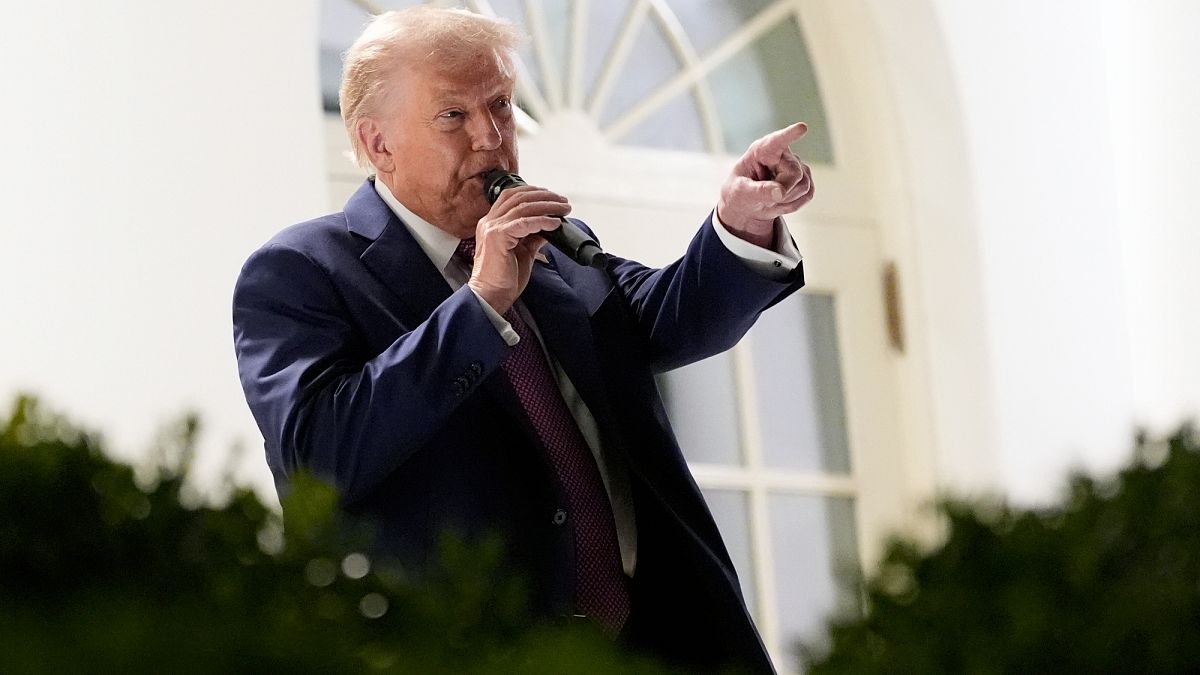

In recent days, a series of significant developments have unfolded across global economic and political landscapes, painting a complex picture of current transformative processes. These changes, rooted in trade disputes and financial recalibrations, emphasize the interconnected nature of today’s world and the need for thoughtful navigation of competing interests and unforeseen challenges.
The European Commission made headlines by enforcing a substantial fine on tech giant Google, amounting to €2.95 billion. This decision stems from allegations that Google has misused its position of dominance within the advertising technology sector. The action marks a significant step in the ongoing efforts of European regulators to enforce fair competition across the digital marketplace. This move also underscores growing transatlantic tensions, particularly as the U.S. administration, under the leadership of President Trump, has criticized the fine as “unfair” and “discriminatory.” Such statements were made via Trump’s Truth Social platform, where he expressed a desire to engage in talks with the European Union, highlighting the potential diplomatic rift over tech regulation and trade relations.
In North America, Canada is responding to the current global trade climate with a decisive strategy. Encumbered by the ongoing trade tensions, Canadian authorities, under the guidance of Mark Carney, are promoting a “Buy Canadian” initiative, supplemented by a C$1 billion relief fund designed to mitigate the impacts of the trade tariffs instigated by the United States. This protective approach aims to strengthen domestic markets and provide resilience against the potential volatility of international trade dealings.
In a parallel fashion, the financial sectors in the United States are experiencing their own shifts, spurred in part by recent employment data that was less than encouraging. The disappointing figures have dampened the recent optimism on Wall Street that had seen records being challenged. Consequently, speculation has risen regarding the Federal Reserve’s monetary policy, with many looking to the possibility of interest rate cuts in upcoming meetings as a counterbalance to struggling economic indicators. Analysts suggest that such measures could potentially stimulate growth and stabilize market confidence in the coming months.
Turning to the Spanish banking industry, a notable development has been the advancement of consolidation efforts where the financial heavyweight Banco Bilbao Vizcaya Argentaria (BBVA) has received approval to acquire Banco Sabadell. This merger aims to create a more robust financial institution, potentially poised to better compete on the global stage. The deal has been in negotiation for over a year, and its progression could mark a golden opportunity for enhanced financial stability within Spain and the broader European context.
These snapshots of economic strategy and international negotiation reflect a world that is actively seeking balance and understanding in an ever-evolving global environment. Economic strategies, regulatory measures, and market responses continue to influence and shape the interconnected tapestry of international relations. As nations and corporations navigate these waters, the emphasis remains on crafting policies that foster equitable growth, sustainable economic practices, and mutual respect among global players.
Such developments highlight not just the individual challenges nations and industries face, but also the broader theme of adaptability and resilience. Embracing the opportunities to collaborate, even amid competing interests, remains a cornerstone in ensuring sustainable progress and prosperity in the global village.
Source: {link}
